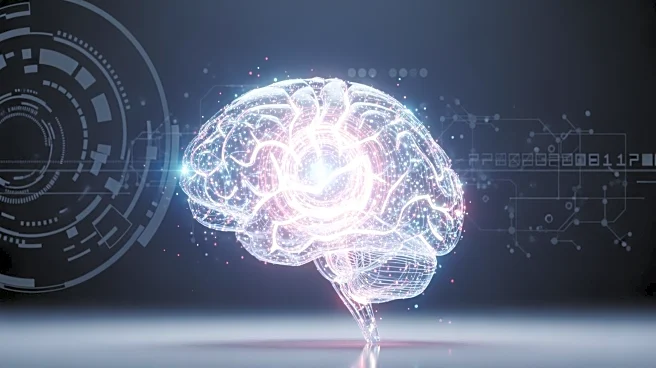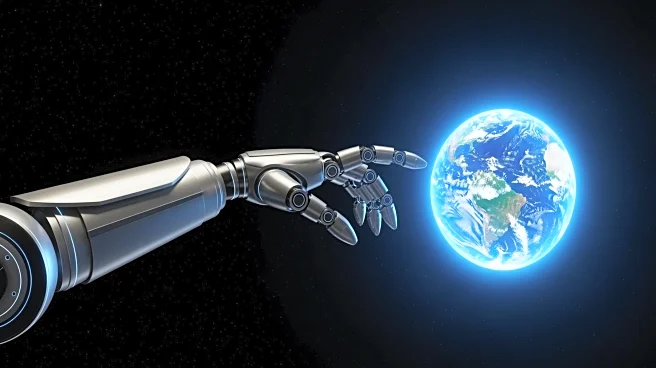What's Happening?
Phenom, a leader in applied AI, has announced three new innovations aimed at enhancing enterprise talent optimization and workforce management. These include Enterprise Talent Optimization & Work Redesign,
Frontline Workforce Lifecycle & Shift Scheduling, and Unified Orchestration Engine. The innovations are designed to connect business strategy with talent execution, allowing companies to rethink work design, mobilize talent, and orchestrate operations across the talent lifecycle. Phenom's platform leverages AI to address persistent gaps in traditional talent approaches, such as uncoordinated workforce data and compliance-driven operational gridlock. The new tools aim to provide a more connected and human experience for the workforce, particularly for frontline employees.
Why It's Important?
Phenom's latest innovations represent a significant advancement in the application of AI to human resources and workforce management. By aligning talent actions with business strategy, companies can improve hiring efficiency, reduce costs, and enhance employee engagement. The focus on frontline workforce lifecycle management addresses a critical need for resources and tools that support these essential workers. As organizations increasingly rely on AI to drive strategic initiatives, Phenom's solutions could lead to more agile and responsive HR practices, benefiting both employers and employees.
What's Next?
Phenom's innovations are expected to influence how companies approach talent management and workforce planning. As organizations adopt these AI-driven tools, they may experience improved operational efficiency and employee satisfaction. The integration of AI into HR processes could also lead to new industry standards and best practices, as companies seek to optimize their talent strategies. Phenom's continued expansion and development of AI solutions will likely drive further advancements in the HR technology sector.
Beyond the Headlines
The introduction of AI-driven talent optimization tools by Phenom highlights the growing importance of technology in workforce management. These innovations could lead to a shift in how companies view and manage their human resources, emphasizing the role of AI in creating more dynamic and responsive work environments. The ethical implications of AI in HR, such as data privacy and employee autonomy, will continue to be areas of focus as companies navigate the integration of technology into their talent strategies.










